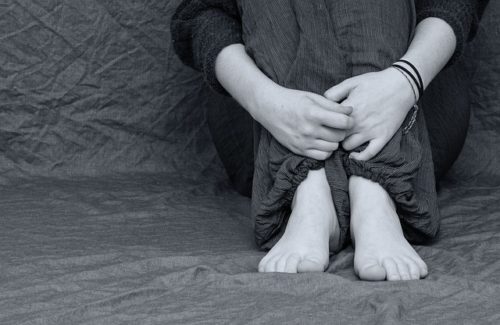We all know someone who has either been a victim of bullying or has somehow been affected by bullying. Bullying in schools has become a national epidemic. Studies have found that 19 percent of U.S. elementary students are bullied. Each day more than 160,000 kids stay home from school because they fear being bullied, according to a survey by the National Education Association, a public-education advocacy group.
My Story
As a child I was picked on. I was picked on a lot. Some of the behavior was borderline bullying behavior. When I think back to my childhood it is hard for me to remember a time when I wasn’t being picked on. The worst times were in junior high and high school. I admit I was a quirky and awkward teenager, but I did not deserve the humiliation I experienced from my peers. During this time I had a very low sense of self and low self-esteem and came to believe all of the negative things that were said about me.
I never told my parents or my teachers or administrators. I never told anyone because I was afraid I would get someone in trouble or that it would be worse for me if I told. This is something I simply learned to deal with. When in high school, I did my best to enjoy it, but truth be told, I could not wait to leave the bubble of high school and start anew in college.
Upon entering college, I was fearful of what people would think of me. I found myself being a little hesitant to trust people’s intentions, but quickly learned that college was much bigger and more diverse than my small town high school was. Life taught me that I was, in fact, a good person and deserving of people’s love.

It does not haunt me as a person; I have discovered who I am and the value that I have. It haunts me as a parent–especially the thought of it happening to my kids.
I do not write all of this to make you feel sorry for me. I write this because even though I overcame a painful past and turned out better on the other side, the memories stay with me even to this day. It does not haunt me as a person; I have discovered who I am and the value that I have. It haunts me as a parent–especially the thought of it happening to my kids. As parents there are things that hurt our hearts when it comes to our kids. One of the things I have the hardest time with is when someone hurts my children.
My oldest child is going to be in kindergarten in the fall. He is a very sweet, kind boy. My son is not overly aggressive. He is not athletic (yet). He is sensitive, has a heart of gold, and wants to be friends with everyone. These are the qualities that make him amazing. However, I fear these are also qualities that will make him an easy target for kids to pick on. I see a lot of myself in him. We have already experienced instances when he has been picked on in playgroups and in social settings with other kids.
It is very hard for me not to step in to intervene. I have realized that I cannot (nor do I want to) solve all of his problems for him. Instead, what I want to do is to give him and my two daughters tools to help them in social situations. Based on my experiences, there are tools that my husband and I will try to equip our kids with to make the most out of hard situations. Here are some of the proactive behaviors we are encouraging.
9 Tips for Putting a Stop to Bullying
1. Use Your Words
We will teach our kids to use their words to solve the problem. Speaking in “I” statements works much better than yelling or blaming.
2. Make Eye Contact
We will teach our kids to look others in the eye when speaking to them. Looking others in the eye when speaking exudes confidence and bravery.
3. Tattling Vs. Telling
We will teach our kids the difference between tattling and telling. According to togetheragainstbullying.org, telling includes these characteristics:
- The child telling wants to keep themselves or others safe.
- The child telling is concerned about safety.
- The problem is important and urgent.
- Someone may be hurt or in danger.
- An adult is needed to help solve the problem.
Tattling includes these characteristics:
- The child tattling wants to get someone else in trouble or avoid blame.
- The child tattling may have something to gain, such as attention or popularity.
- No one is hurt or in danger.
- It is not an important problem and can be solved without an adult.
- The child threatens to tell on another in order to control the other child.
4. Speak Up
We will encourage our children not to be afraid to speak up when someone is making them feel bad. We will do our best to be aware of body language that might suggest something is bothering them.
5. Connect with Teachers
Once we know what is happening, we will talk to our child’s teacher. We will be specific about what happened and who is involved.
6. Communicate with Other Parents
As parents we will contact the other child’s parents. This is especially important after multiple incidents. It is important not to accuse, but rather work together to solve the problem. I think finding a way to contact the other child’s parents in a rational and non-confrontational way is the best approach.
7. Make a Plan
We will coach our children to get help. We will teach them to walk away and seek the help of a teacher or adult. Children need to feel they are being heard. We want to encourage them to get the help they need.
8. Teach Mutual Respect
Our goal is to help our kids understand that no one has the power to make them feel inferior or unimportant. We will teach our kids to always respect others no matter how different they are from us.
9. Choose Kindness
When I think back to my experience, I think of kindness. My parents always taught me to be kind to and respect others. I think that is what kept me afloat. I truly think kindness trumps all hate. If we can teach our kids to be kind, they will be much better off. I am not suggesting to completely ignore mean and rude behavior. I am suggesting that if we teach kindness from a young age we can hopefully avoid and prevent bullying behavior from happening. As parents we have done our best and will continue to teach our kids that kindness is always the best policy.
As I write this, I am still fearful of what my kids will have to deal with as they get older. My hope is that if we can do our best to teach our kids appropriate coping mechanisms and give them tools and problem-solving skills, they will have a positive school experience.
My experience was a painful time, but I truly think I am a stronger person because of it. I know that my experience taught me a lot and it has empowered me to make the world a better place for myself, my family, and all people who cross my path.
I encourage you to try these strategies with your children. For any of you parents out there who have experience with this, feel free to comment below with ideas that have worked for you. If we can all pledge as parents to do our best to be tuned-in to our children’s emotional needs, then hopefully we can stop these cycles of bullying.










